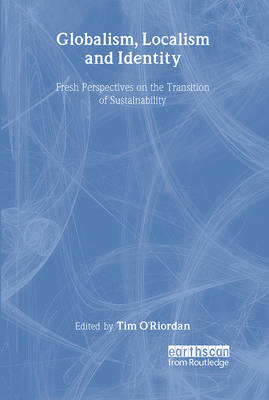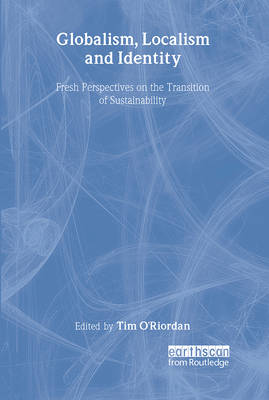
- Afhalen na 1 uur in een winkel met voorraad
- Gratis thuislevering in België vanaf € 30
- Ruim aanbod met 7 miljoen producten
- Afhalen na 1 uur in een winkel met voorraad
- Gratis thuislevering in België vanaf € 30
- Ruim aanbod met 7 miljoen producten
Zoeken
Globalism, Localism and Identity
New Perspectives on the Transition of Sustainability
Tim O'Riordan
Paperback | Engels
€ 36,45
+ 72 punten
Omschrijving
Global economic and social forces are affecting everyone, everywhere. However, their influence is shaped by local communities' interpretation of these forces and responses to them. Social identities provide a guide; they are the product of history, culture, economy, patterns of governance and degree of community cohesion. How the global and the local connect and reconfigure at various scales and through different cultures is explained in this forward-looking volume. The book's thesis, namely that localism is the crucial complement to globalism, is supported by a range of European case studies. Local responses to globalizing forces depend on the nature of the interlinkages in governance from international structures, through multilateral organizations to nation states, regions and localities, as these are mediated through social-local identity. The contributors draw on numerous themes in examining the interaction between the global and the local, such as decay and revitalization, local identity and empowerment, opportunism through sustainability and governance for the transition. This is a pioneering publication utilizing an innovative person-centred methodology. It makes an original and important contribution to the study of contemporary societies and is aimed at anyone interested in the social, economic, political, cultural and environmental implications of any move towards sustainability.
Specificaties
Betrokkenen
- Auteur(s):
- Uitgeverij:
Inhoud
- Aantal bladzijden:
- 272
- Taal:
- Engels
Eigenschappen
- Productcode (EAN):
- 9781853837326
- Verschijningsdatum:
- 1/08/2002
- Uitvoering:
- Paperback
- Formaat:
- Trade paperback (VS)
- Afmetingen:
- 153 mm x 234 mm
- Gewicht:
- 430 g

Alleen bij Standaard Boekhandel
+ 72 punten op je klantenkaart van Standaard Boekhandel
Beoordelingen
We publiceren alleen reviews die voldoen aan de voorwaarden voor reviews. Bekijk onze voorwaarden voor reviews.











